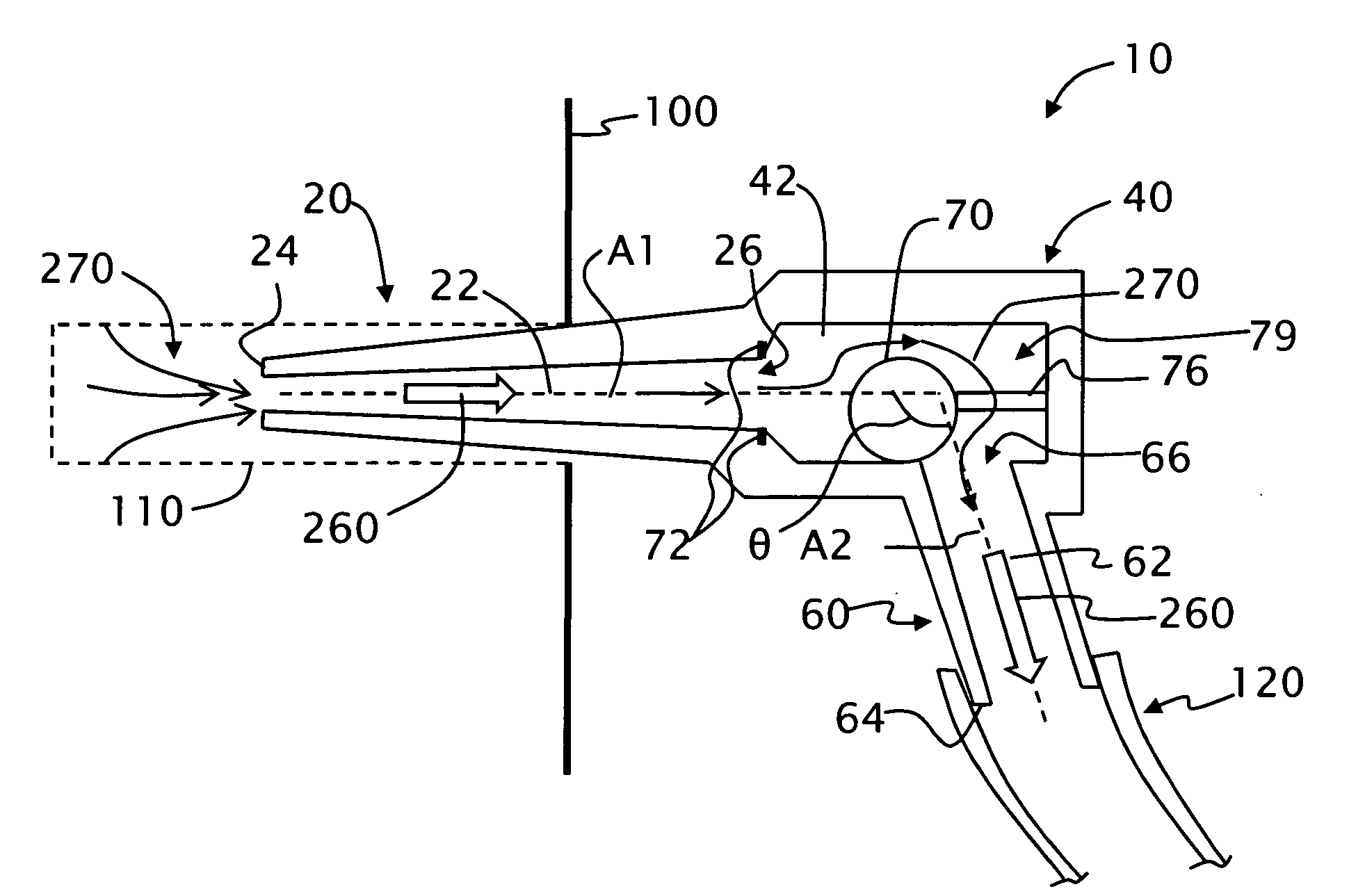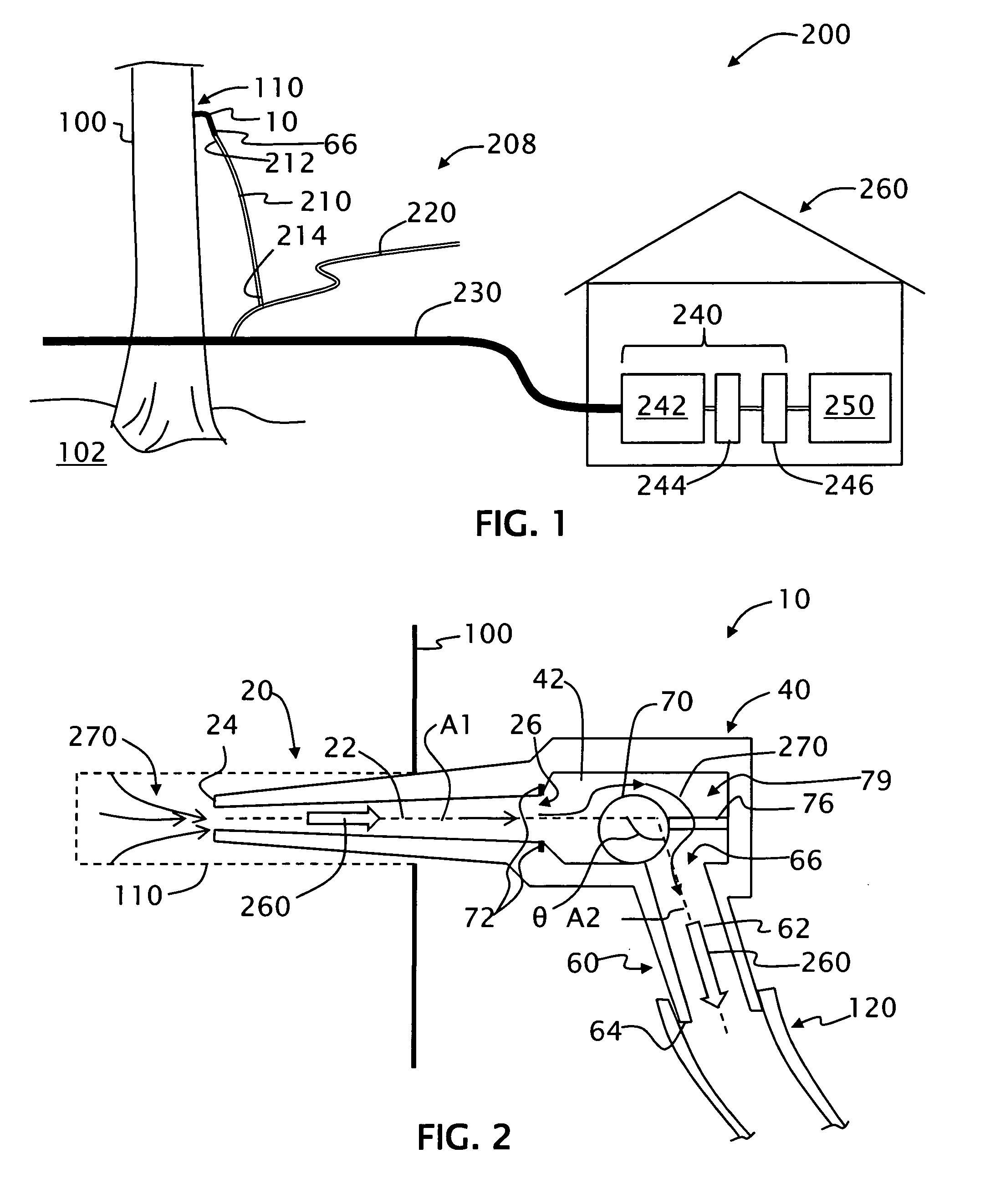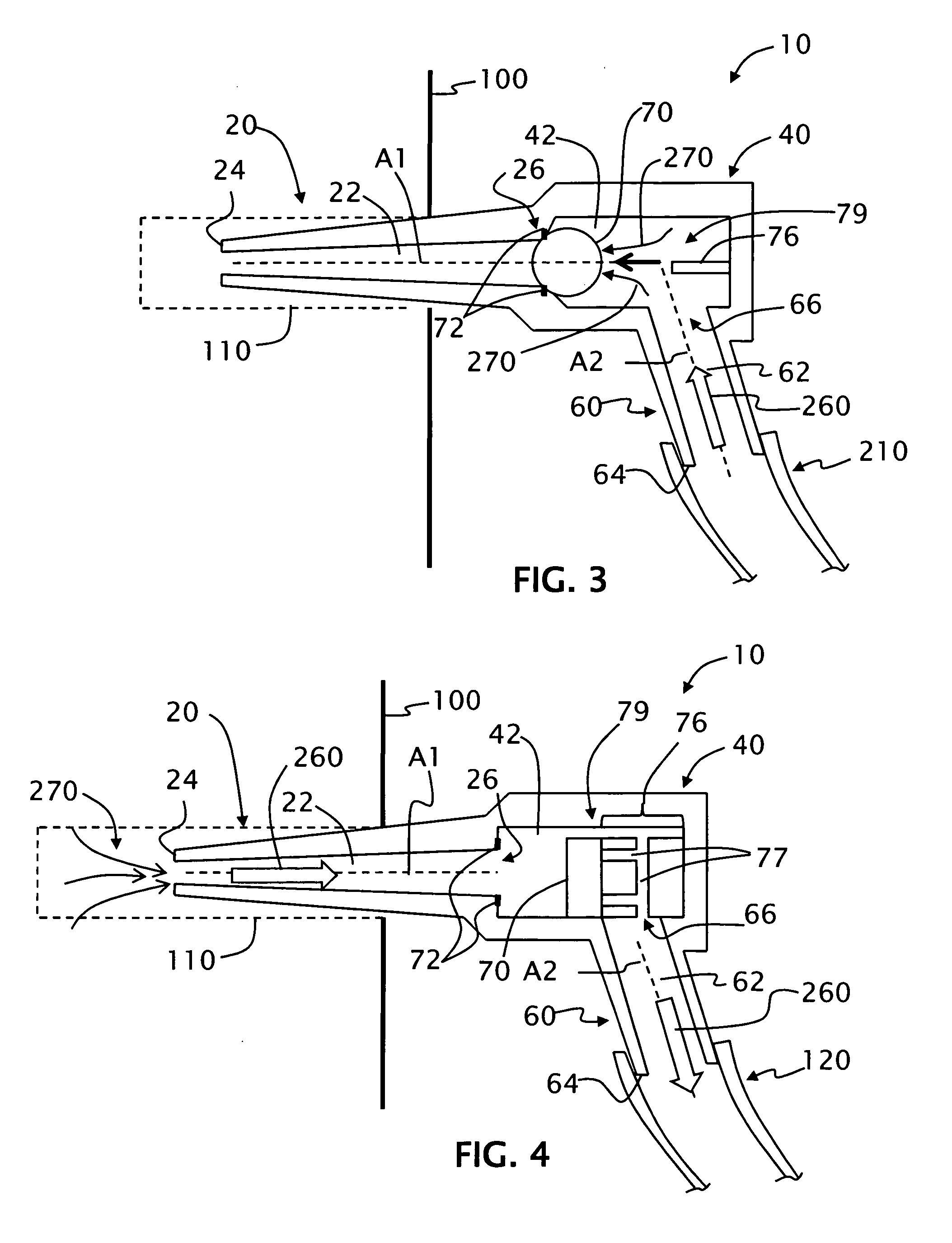Maple syrup production spout assembly with backflow check valve
a backflow check valve and maple syrup technology, applied in the field of maple syrup production, can solve the problems that the current maple syrup spouts do not prevent sap from flowing back into, and achieve the effects of reducing or preventing the backflow of sap, reducing microbial contamination of the taphole, and increasing soil-based water uptake by the tr
- Summary
- Abstract
- Description
- Claims
- Application Information
AI Technical Summary
Benefits of technology
Problems solved by technology
Method used
Image
Examples
Embodiment Construction
[0024]FIG. 1 shows a schematic diagram of an example maple syrup production system 200 that includes spout assembly 10 connected to tree 100 at a taphole 110 formed therein. Spout assembly 10 is described in greater detail below. System 200 includes a line system 208 that includes a dropline 210, a lateral line 220 and a mainline 230. A first end 212 of a dropline 210 is fluidly connected to an output end 66 of spout assembly 10 while the other end 214 is fluidly connected to lateral line 220.
[0025]Lateral line 220 in turn is operably connected to mainline 230, which in turn is operably connected to vacuum pump system 240 that includes a vacuum pump 242, an extractor 244 and a sap storage tank 246 An evaporator 250 is operably connected to vacuum pump system 240 Vacuum pump system 240, extractor 244, storage tank 246 and evaporator 250 are shown as housed in a sugarhouse 260. System 200 thereby provides vacuum-assisted fluid communication between taphole 110 and evaporator 250 so th...
PUM
 Login to View More
Login to View More Abstract
Description
Claims
Application Information
 Login to View More
Login to View More - R&D
- Intellectual Property
- Life Sciences
- Materials
- Tech Scout
- Unparalleled Data Quality
- Higher Quality Content
- 60% Fewer Hallucinations
Browse by: Latest US Patents, China's latest patents, Technical Efficacy Thesaurus, Application Domain, Technology Topic, Popular Technical Reports.
© 2025 PatSnap. All rights reserved.Legal|Privacy policy|Modern Slavery Act Transparency Statement|Sitemap|About US| Contact US: help@patsnap.com



